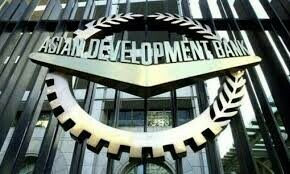According to a statement released on Tuesday, the Asian Development Bank (ADB) has approved a $500 million policy-based loan to support Pakistan’s resilience to climate change, disaster risk reduction, and other hazards.
According to estimates from the government, massive floods brought on by climate change will strike Pakistan in 2022. They will kill 1,700 people, wipe out swaths of agricultural land, affect 33 million people, and cause losses worth $30 billion.
Pakistan’s institutional capacity for planning, preparedness, and response will be strengthened by the Climate and Disaster Resilience Enhancement Program (CDREP); bolster climate resilience and risk reduction through inclusive investment; and support a risk-layered approach to scaling up disaster risk financing, according to the statement.
“Pakistan is one of the nations in Asia and the Pacific that is most susceptible to natural disasters and climate change. Each year, disaster-related losses average more than $2 billion.
According to the statement, “climate change and disaster events are disproportionately affecting women and other vulnerable groups.”
Yevgeniy Zhukov, ADB Director General for Central and West Asia, stated, “This program builds on ADB’s longstanding work in Pakistan to understand and reduce climate and disaster risks and support effective disaster response.”
According to the statement, Zhukov was quoted as saying, “We are proud to support an integrated and comprehensive approach to climate and disaster risk management, including a portfolio of disaster risk financing instruments for timely and adequate funding for disaster response.”
It went on to say that the program helps improve coordination for disaster monitoring and response, as well as the enhanced capacity for disaster risk mapping and modeling for investment and development decisions. Gender-sensitive and resilient public investments, such as integrated flood risk management and nature-based solutions, are also supported by this policy.
The program aids in the collection of public and private climate finance. This includes issuing a domestic green sukuk, also known as an Islamic bond.
The program’s use of ADB’s Contingent Disaster Financing for the first time in Central and West Asia is a significant innovation. In the event of a disaster, this will enable quick budget support to be distributed.
According to the statement, the program will also support shock-responsive social protection to provide cash assistance in the event of a disaster. Additionally, the program will support the establishment of a solidarity fund to facilitate the adoption of risk transfer solutions like agriculture insurance.
A $1 million grant for technical assistance has also been approved by the ADB to help with the program’s implementation.
The ADB announced in September that it would provide Pakistan with $2 billion annually for the next three years to support climate-resilient initiatives and infrastructure development.
A report by the Arrangement and Methodology Panel (PSC) and the Oversight Load up on Post-Flood Recreation Exercises showed last month that the nation had just gotten $10.9bn from worldwide improvement accomplices out of the complete assessed misfortune for post-flood remaking work, leaving a $19.1bn shortage that has ended the restoration of flood-impacted networks in three territories.
Pakistan is the focus of ADB’s country partnership strategy for 2021–2025, which focuses on three priorities: working on financial administration, building versatility, and helping seriousness and confidential area improvement.
The bank has committed 755 loans, grants, and technical assistance to Pakistan’s public sector worth $41.4 billion as of December 31, 2023. The ADB currently has 55 loans and four grants totaling $10.11 billion in Pakistan’s sovereign portfolio.
Pakistan has received $31.76 billion in grant and loan payments from sovereign and non- sovereign sources.
Regular and concessional ordinary capital resources, the Asian Development Fund, and other special funds provided financing for these loans.



